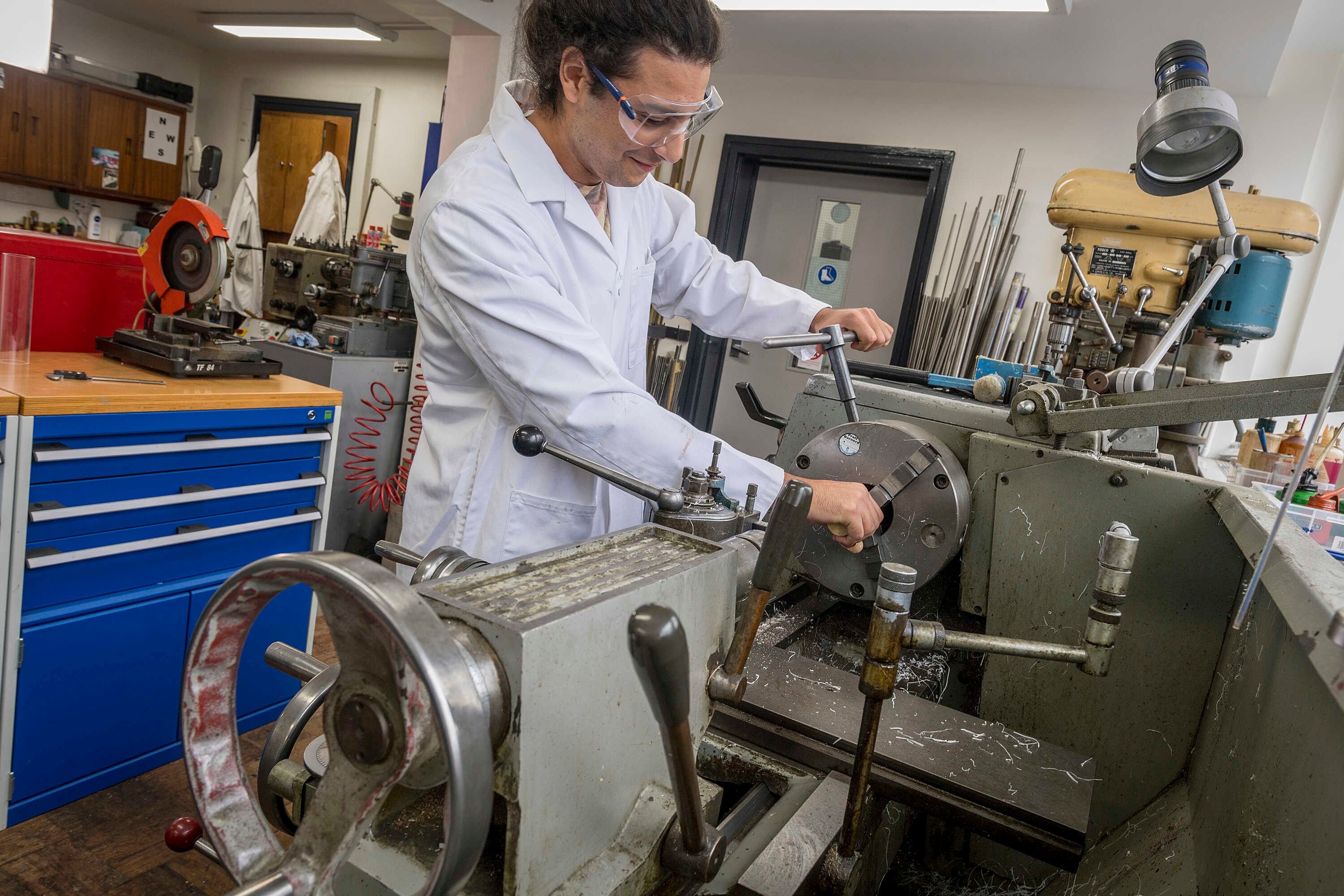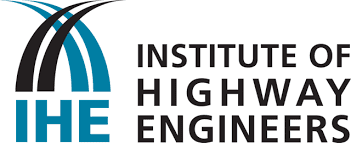
Geotechnical and Earthquake Engineering
Build your understanding of the theory of geomechanics and key concepts of engineering seismology
Build your understanding of the theory of geomechanics and key concepts of engineering seismology
Improve your lab research skills in state-of-the-art facilities
Further your learning on study field trips in the UK and abroad
Course key facts
-
Qualification
-
MSc
-
-
Duration
1 year, 2 years
-
Start date
September 2024
-
Study mode
Full-time, Part-time
-
Fees
£17,600 Home
£40,900 Overseas
-
Delivered by
-
Location
-
South Kensington
-
Minimum entry standard
-
2:1 in civil engineering, natural sciences, earth sciences or other numerate disciplines
Course overview
Advance your knowledge of core geotechnics on this one-year, MSc course, which also specialises in key aspects of engineering seismology.
This balanced programme will provide you with a solid technical basis in geotechnics, and explore the impact of seismic hazards on geotechnical infrastructure.
You'll enhance your technical and research skills working in modern, purpose-built laboratories, and carry out an extensive research project.
This degree will also enable you to forge strong links with industry and enhance your fieldwork expertise on a series of trips to areas of geological and geotechnical interest in the UK and abroad.
This course is part of the geotechnics cluster of courses at Imperial. These streams share approximately 80% of the curriculum, while the remaining 20% allows specialisation in the areas of advanced Soil Mechanics, Engineering Seismology, Environmental Geotechnics and Engineering Geology.
- Geotechnical Engineering
- Geotechnical and Geoenvironmental Engineering
- Geotechnical and Geological Engineering
- Geotechnical and Earthquake Engineering (this stream)
- Geotechnical Engineering with Data Science
Structure
This page is updated regularly to reflect the latest version of the curriculum. However, this information is subject to change.
Find out more about potential course changes.
Please note: it may not always be possible to take specific combinations of modules due to timetabling conflicts. For confirmation, please check with the relevant department.
You’ll take all of these core modules.
Core modules
Develop your understanding of the flow of water in soil strata under both steady state conditions (seepage) and transient conditions (consolidation).
Build upon basic principles of soil mechanics to establish modern frameworks for describing the behaviour of clays and sands under a variety of loading conditions using Critical State Soil Mechanics theory.
Uncover the theory behind the methods of analysis available for geotechnical design and understand the assumptions behind different methods.
Gain an in-depth understanding of site investigation techniques and learn how they can be used within the context of the geological and geomorphological setting to reduce uncertainty in the subsurface.
Analyse the design of rigorous geotechnical laboratory testing programmes, and develop the critical skill and ability to recognise and assess experimental errors.
Explore the fundamental elements of engineering seismology and seismic hazard assessment.
Learn how to design foundations and earth-retaining structures, solving typical geotechnical soil-structure interaction problems.
Examine the geotechnical characteristics of slopes and embankments, and learn how to classify mechanisms that underpin landslides, considering both geomorphological and geotechnical criteria.
Assess the fundamentals of soil response, considering advanced material behaviour and more complex external conditions.
Discuss, prepare and run a Finite Element (FE) analysis of a geotechnical problem and compare between numerical and analytical solutions.
Understand the fundamentals of soil dynamics and perform an equivalent-linear site response analysis.
Develop your geotechnical skills in the natural environment on three separate field trips spaced through the academic year. Gain first-hand experience of real world rock/soils, geological setting, geohazards and construction projects.
Learn from experts in industry on current developments in the field and explore present prominent projects from all over the world.
You’ll also undertake a specific piece of independent research.
This could take the form of a critical review, a laboratory- or field-based experimental investigation, or a modelling/numerical analysis project.
Your project and results will be reported in a research dissertation.
Professional accreditation
This MSc degree is accredited on behalf of the Engineering Council by the Joint Board of Moderators (JBM), comprising:
- Institution of Civil Engineers
- Institution of Structural Engineers
- Institute of Highway Engineers
- Chartered Institution of Highways and Transportation
This degree is recognised as meeting the requirements for Further Learning for a Chartered Engineer (CEng) for candidates who have already acquired a partial CEng accredited undergraduate first degree**.
Registering as a Chartered Engineer will improve your career prospects and provide higher earning potential. It will also help to demonstrate your commitment to professional standards, the engineering profession and sustainable development.
Our accreditation agreement with members of the Joint Board of Moderators is renewed every five years. The current accreditation agreement is due to be renewed in 2026.
**Candidates completing the MSc who hold an underpinning accredited IEng degree or a non-accredited Bachelor's degree will need to apply for an academic assessment to determine whether they will meet the educational base for CEng registration.
Teaching and assessment
Balance of teaching and learning
Key
- Lectures and seminars
- Independent study
- 30% Lectures and seminars
- 70% Independent study
Teaching and learning methods
-
Lectures
-
Tutorials
-
Laboratory practicals
-
Computer sessions
-
Field trips
-
Site visits
-
Virtual learning environment
-
Research project
Balance of assessment
Key
- Coursework and practicals
- Examinations
- 23% Coursework and practicals
- 77% Examinations
Assessment methods
-
Coursework
-
Group projects and presentations
-
Field trip notes and presentations
-
Written exams and e-examinations
-
Research dissertation
Entry requirements
We consider all applicants on an individual basis, welcoming students from all over the world.
How to apply
Apply online
You can submit one application form per year of entry. You can choose up to two courses.
Application deadlines – Round 3 closes on Friday 24 May 2024
We operate a staged admissions process with several application rounds throughout the year.
Apply by midnight (UK time) on the relevant application round deadline to ensure that you receive the outcome of your application by the decision date.
We recommend applying as early as you can – we cannot guarantee that places will be available, or that courses will remain open, in later rounds.
Application rounds
Round 1
- Apply by 19 January 2024
- Decision by 9 March 2024
Round 2
- Apply by 4 April 2024
- Decision by 11 May 2024
Round 3
- Apply by 24 May 2024
- Decision by 27 July 2024
Round 4
- Apply by 5 July 2024
- Decision by 3 August 2024
There is no application fee for MRes courses, Postgraduate Certificates, Postgraduate Diplomas, or courses such as PhDs and EngDs.
If you are applying for a taught Master’s course, you will need to pay an application fee before submitting your application.
The fee applies per application and not per course.
- £80 for all taught Master's applications, excluding those to the Imperial College Business School.
- £100 for all MSc applications to the Imperial College Business School.
- £150 for all MBA applications to the Imperial College Business School.
If you are facing financial hardship and are unable to pay the application fee, we encourage you to apply for our application fee waiver.
Find out more about how to apply for a Master's course, including references and personal statements.
An ATAS certificate is not required for students applying for this course.
Tuition fees
Home fee
Full-time
£17,600
Part-time
£8,800per year
Fees are charged by year of entry to the College and not year of study.
You should expect and budget for your fees to increase each year.
Your fee is based on the year you enter the College, not your year of study. This means that if you repeat a year or resume your studies after an interruption, your fees will only increase by the amount linked to inflation.
Find out more about our tuition fees payment terms, including how inflationary increases are applied to your tuition fees in subsequent years of study.
Whether you pay the Home or Overseas fee depends on your fee status. This is assessed based on UK Government legislation and includes things like where you live and your nationality or residency status. Find out how we assess your fee status.
If you're a UK national, or EU national with settled or pre-settled status under the EU Settlement Scheme, you may be able to apply for a Postgraduate Master’s Loan from the UK government, if you meet certain criteria.
The government has not yet published the loan amount for students starting courses in Autumn 2024. As a guide, the maximum value of the loan was £12,167 for courses starting on or after 1 August 2023.
The loan is not means-tested and you can choose whether to put it towards your tuition fees or living costs.
- Personal Equipment (safety boots): Please provide your own. You will have the ability to purchase in College during the first week at around £30
- Field trip to Kent: Saturday's lunch
- Field trip to Bristol: Saturday's lunch
- Field trip to Greece: Roundtrip flight (≈£400) + visa (if required)
Overseas fee
Full-time
£40,900
Part-time
£20,450per year
Fees are charged by year of entry to the College and not year of study.
You should expect and budget for your fees to increase each year.
Your fee is based on the year you enter the College, not your year of study. This means that if you repeat a year or resume your studies after an interruption, your fees will only increase by the amount linked to inflation.
Find out more about our tuition fees payment terms, including how inflationary increases are applied to your tuition fees in subsequent years of study.
Whether you pay the Home or Overseas fee depends on your fee status. This is assessed based on UK Government legislation and includes things like where you live and your nationality or residency status. Find out how we assess your fee status.
If you're a UK national, or EU national with settled or pre-settled status under the EU Settlement Scheme, you may be able to apply for a Postgraduate Master’s Loan from the UK government, if you meet certain criteria.
The government has not yet published the loan amount for students starting courses in Autumn 2024. As a guide, the maximum value of the loan was £12,167 for courses starting on or after 1 August 2023.
The loan is not means-tested and you can choose whether to put it towards your tuition fees or living costs.
- Personal Equipment (safety boots): Please provide your own. You will have the ability to purchase in College during the first week at around £30
- Field trip to Kent: Saturday's lunch
- Field trip to Bristol: Saturday's lunch
- Field trip to Greece: Roundtrip flight (≈£400) + visa (if required)
How will studying at Imperial help my career?
Develop the essential core knowledge and skills for a career in soil mechanics.
Build relationships with industry contacts you'll meet throughout the program.
Work in the field, conduct lab tests, and analyse numerical data to gain practical experience.
Become an international consultant, contractor or work for a governmental body or academic institution.
Our graduates often pursue further study in master's programs or doctoral research in geotechnics.
Each year, a number of our MSc graduates are recruited by companies participating in our Industrial Bursary programme.
Further links
Contact the department
- Telephone: +44(0) 20 7594 5932
- Email: cvpgo@imperial.ac.uk
Course Director: Dr Ken Vinck
Visit the Department of Civil and Environmental Engineering website.

Request info
Find out more about studying at Imperial. Receive updates about life in our community, including event invites and download our latest Study guide.
Request info


Terms and conditions
There are some important pieces of information you should be aware of when applying to Imperial. These include key information about your tuition fees, funding, visas, accommodation and more.
You can find further information about your course, including degree classifications, regulations, progression and awards in the programme specification for your course.
Programme specifications





